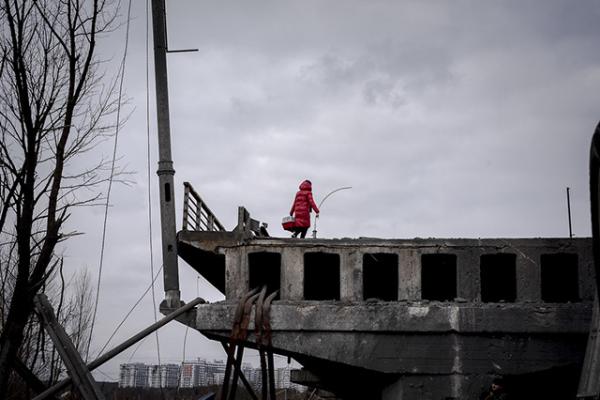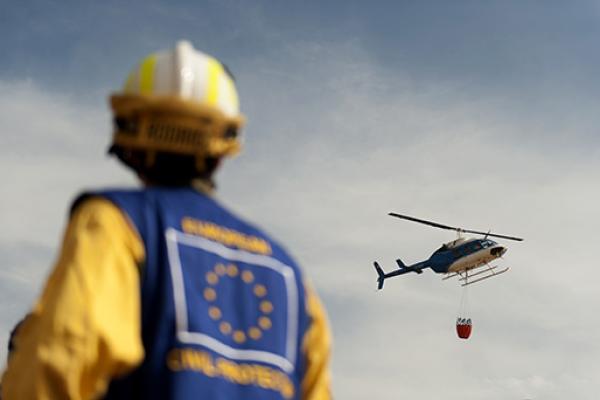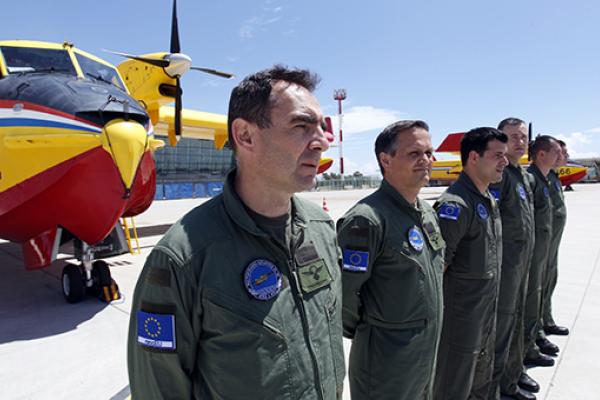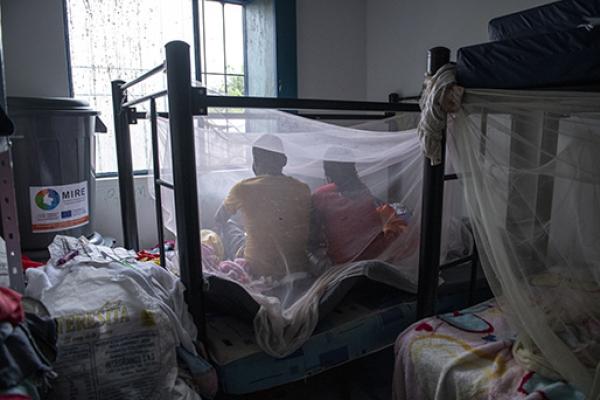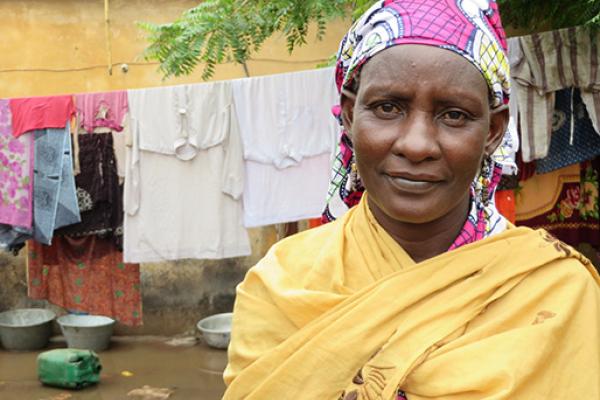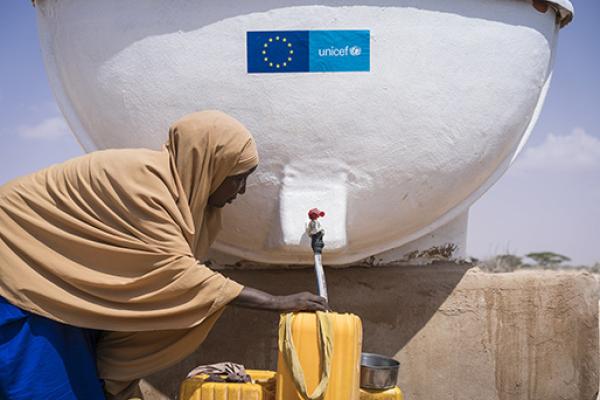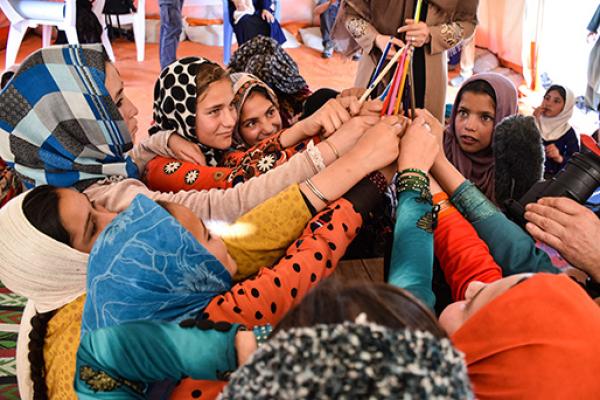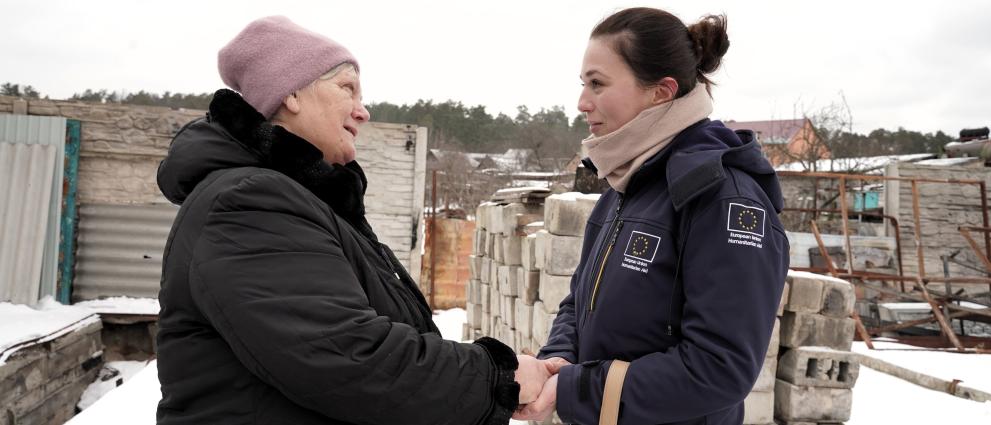
Today, the Commission is announcing an initial €83 million in humanitarian aid to support the people affected by Russia's war against Ukraine in 2024.
Russia's targeted attacks on Ukraine's key energy and civilian infrastructure like hospitals, schools and power grids are seriously hampering people's access to basic services. With each new shelling, more and more Ukrainians are left homeless and in need of assistance and shelter in freezing conditions. With an estimated 14.6 million people in need of humanitarian aid in Ukraine, this new funding comes at a crucial time.
Of the €83 million humanitarian funding:
- €75 million is allocated for humanitarian projects in Ukraine to provide emergency aid including access to basic needs such as shelter, protection services, clean water, education and healthcare. At the heart of EU's humanitarian strategy in Ukraine today is protecting people affected by the war, especially those living close to the frontline areas.
- €8 million is allocated for humanitarian projects in Moldova providing targeted assistance to the most vulnerable, including humanitarian cash assistance for basic needs, protection, and health.
Including the new funding announced today, the European Commission has allocated in total €926 million for humanitarian aid programmes to help civilians affected by the war in Ukraine since Russia's invasion in February 2022.
Of this funding, €860 million has been allocated for humanitarian programmes within Ukraine and €66 million to support refugees who have fled to neighbouring Moldova.
EU humanitarian aid, present in Ukraine since 2014, is running operations all across the country, with a focus on hard-to-reach areas close to the frontline in the eastern and southern regions.
Commissioner for Crisis Management, Janez Lenarčič, said: "In the past two years, Russia has been waging an unjust and unjustifiable war against Ukraine and its people. While I commend the resilience and iron will of the Ukrainian people, it is evident that the war has left almost 40% of Ukrainians dependent on humanitarian aid. To assist the most vulnerable people affected by this war also in 2024, the EU will provide an initial €75 million in humanitarian aid to Ukraine and €8 million to Moldova. And we will continue to closely monitor the evolving needs on the ground so as to react to the most pressing humanitarian challenges. The EU’s commitment to the Ukrainian people is as strong as ever."
Background
Russia's war on Ukraine has inflected immeasurable suffering, caused massive destruction, and triggered grave humanitarian needs. Heavy fighting and attacks continue to endanger the lives of civilians and cause severe damage to housing, water and electricity supply, heating, and public infrastructure such as schools and health facilities. Millions of people have limited or no access to basic services.
With continuous military attacks by Russia on civilians and civilian infrastructure, the European Union is supporting the fight against impunity in Ukraine by supporting relevant international investigations of the violations of international humanitarian law and war crimes.
The EU has mobilised all available resources to enable emergency assistance into Ukraine.
In addition to its humanitarian aid operations, the European Commission has been coordinating its largest ever operation under the EU Civil Protection Mechanism by delivering more than 140,000 tonnes of in-kind assistance into Ukraine, such as ambulances, fire engines, medicines, shelter supplies, power generators, and much more.
For extra layer of crisis support, the EU has also deployed its own rescEU emergency stockpiles to send power generators, medical equipment, temporary shelter, and specialised equipment for public health risks such as chemical, biological, radiological, and nuclear threats.
Details
- Publication date
- 20 February 2024
- Author
- Directorate-General for European Civil Protection and Humanitarian Aid Operations (ECHO)

